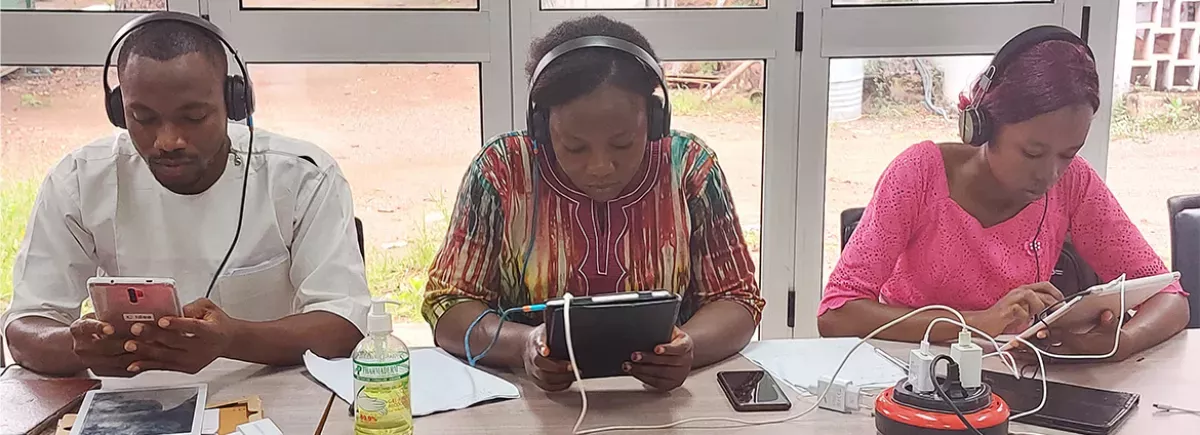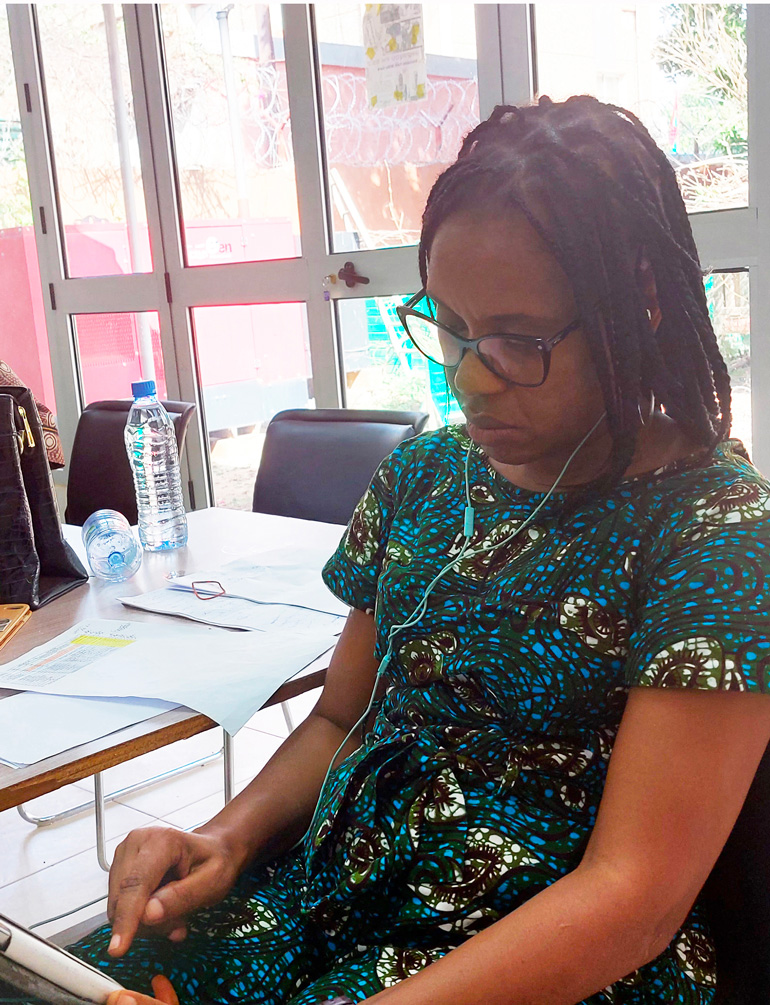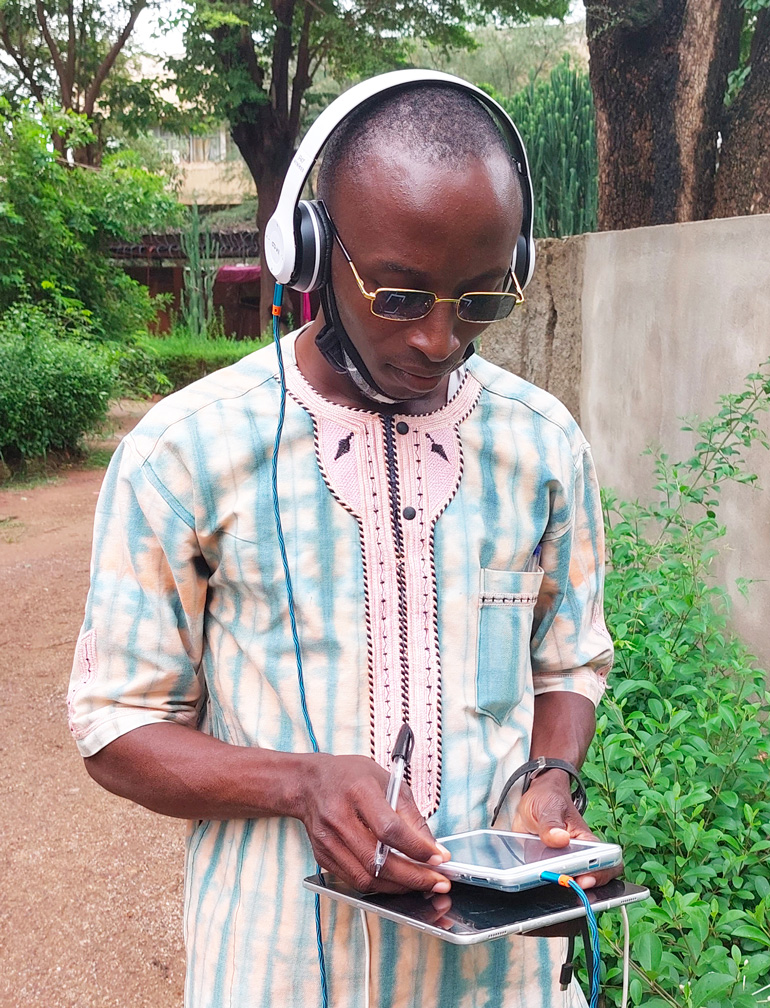
“Judges” to assess the quality of radio productions
Related project
MediaSahelTo assess the content produced as part of the MediaSahel project, young people and media professionals took part in listening committees in July and August in Ouagadougou (Burkina Faso). Aissata Sankara, journalist and trainer, and Marcel Millogo, youth intermediary for the Est region, review their experience.
What’s your overall assessment of the programmes you listened to?
Aissata Sankara: “Overall, I am satisfied. We have heard good programmes and good reports, in particular reports on the resilience of a young boy with impaired vision, on depigmentation and online sexual harassment. These are topics that take into consideration youth and gender issues. As a trainer, I have noticed a significant improvement in the quality of the radio productions. Some hosts implemented what they learned during our training sessions. But, for others, there are still gaps in terms of the angles they choose, preparation, etc.”
Marcel Millogo: “My overall impression of these programmes is very positive. We have listened to programmes from Jeunes Wakat and the online media outlet Kiogo Kiogo. These have given me an overview of these partners, who I didn’t necessarily follow, but which are interested in youth and gender issues. I learnt a lot about current issues.”
Do you think that broadcasting this content will have an impact on young people, and if so, what sort of impact?
Aissata Sankara: “The programmes I already mentioned will have a considerable impact on young people. They are programmes that raise awareness. These issues affect the lives of young people in our societies. With the solutions put forward, we may be able to resolve or avoid quite a few issues.”
Marcel Millogo: “Those that I listened to will have an impact on us. For example, the programme on post-baccalaureate education choices is very topical. Many of our young graduates are facing this very situation. The content of these productions calls on us to think seriously about our way of being or living in society.”
What would you recommend to the various radio stations to improve the quality of their programmes?
Aissata Sankara: “The main recommendation that I would make is to invite the various directors to support production initiatives. This is not always easy because of the lack of financial, human or material resources.”
Marcel Millogo: “My wish for future programmes is for young people to be involved in the choice of subjects. This will enable the radio stations to understand young people’s main worries and will certainly increase listener numbers. I would also like, where possible, programmes aimed at young people to be hosted by young people with more young guests. And lastly, I would urge the media outlets to explore other distribution channels, such as social media, to inform and reach as many people as possible before and during the programmes.”
Aissata Sankara and Marcel Millogo during the listening committee session in Ouagadougou




